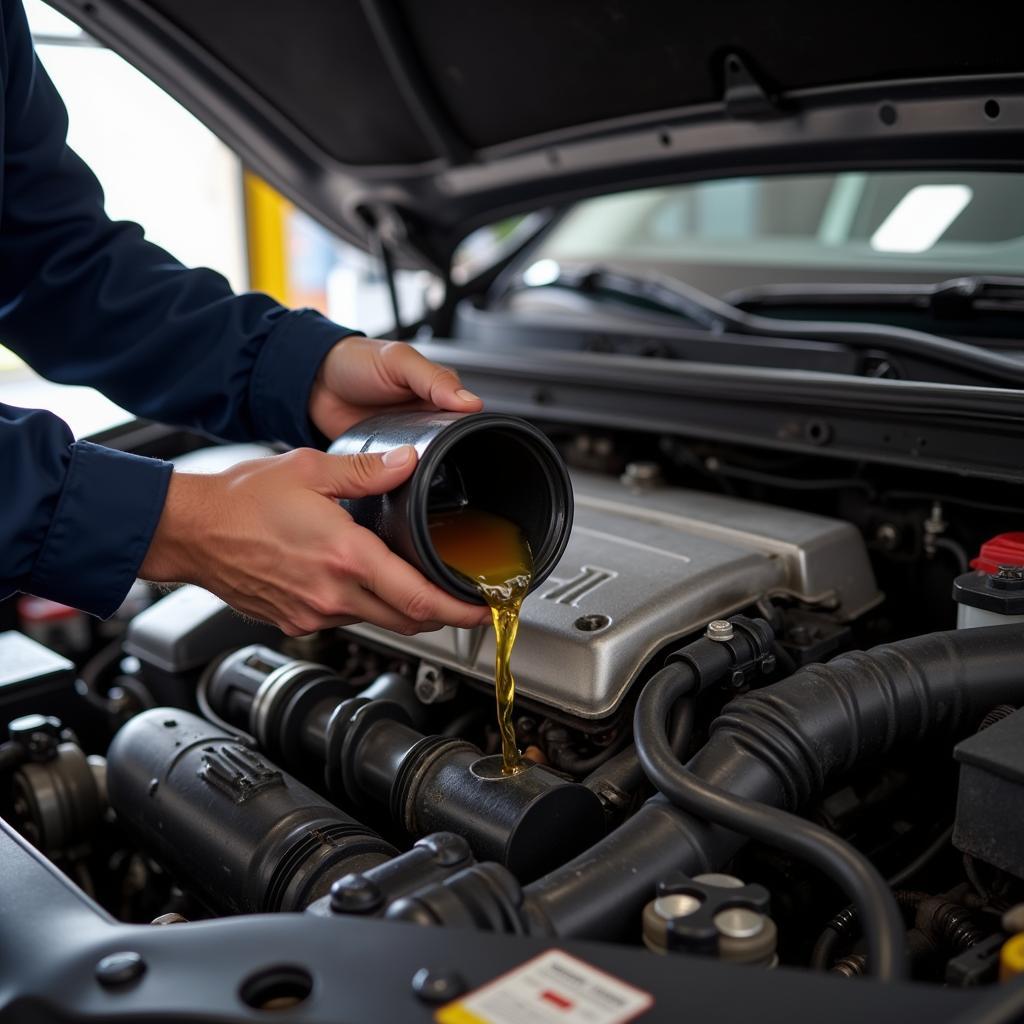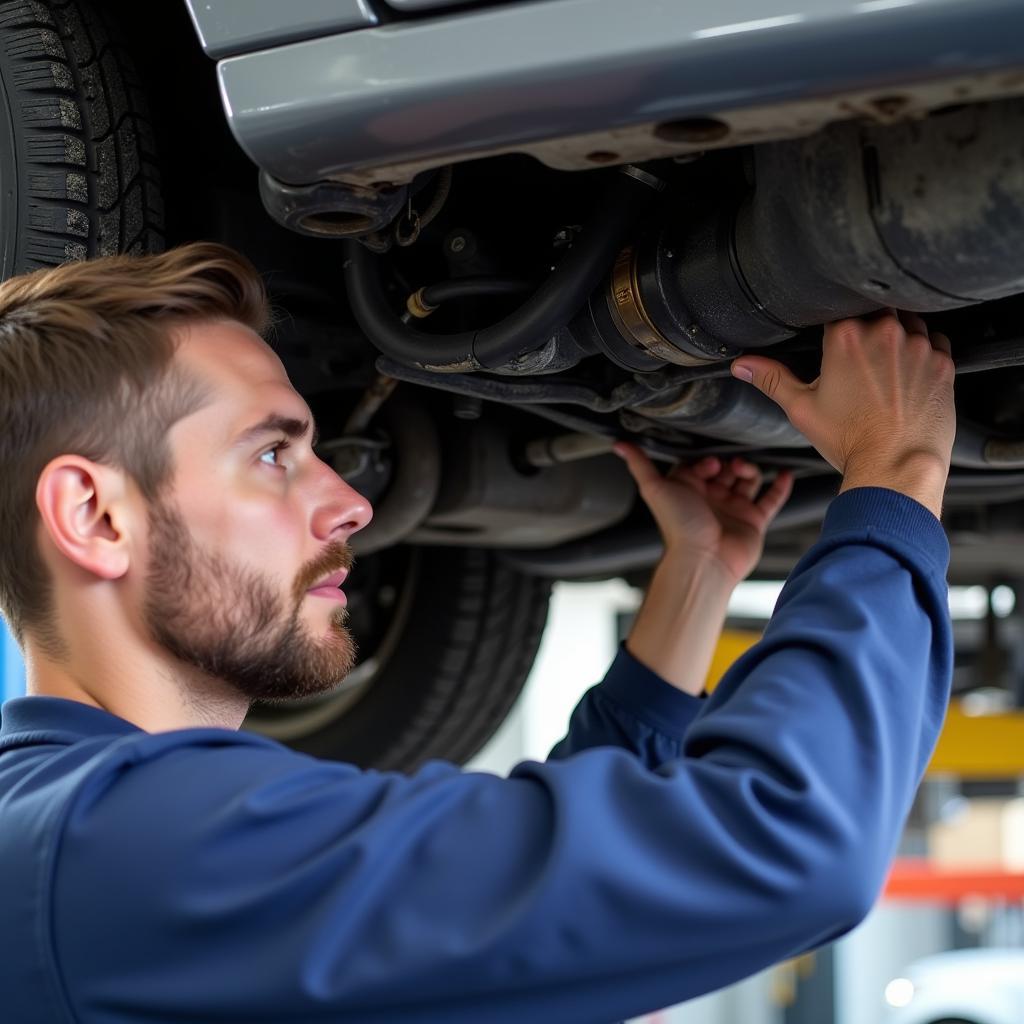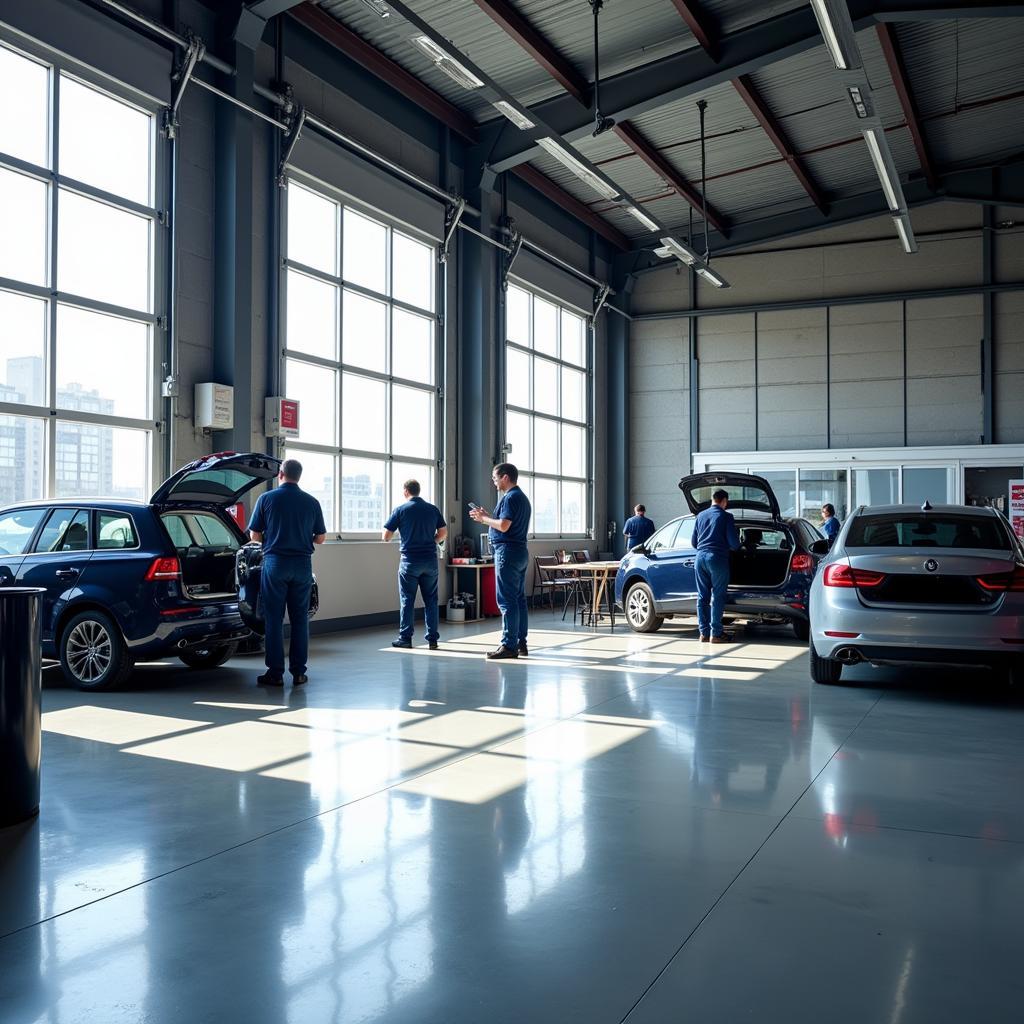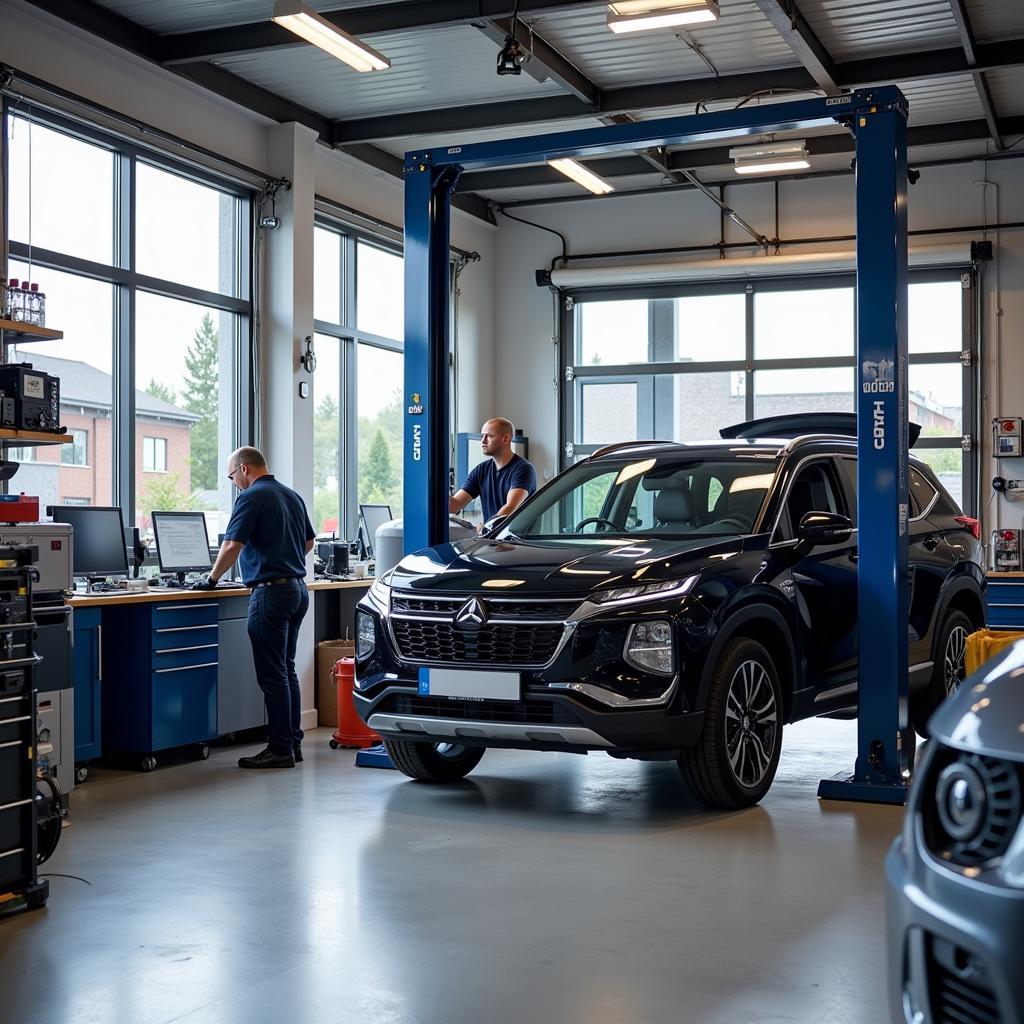What is Done in a Standard Car Service?
Maintaining your car can feel like a chore, but regular servicing is crucial for its longevity and your safety. Understanding what a standard car service entails can help you appreciate its importance and schedule appointments confidently. Let’s delve into the details of what’s typically covered in a standard car service.
What Does a Standard Car Service Include?
A standard car service, also known as an interim service, typically combines checks, inspections, and replacements to ensure your car runs smoothly. While specifics can vary depending on the make, model, and mileage of your vehicle, here’s a general outline of what to expect:
Engine Oil and Filter Change
 Engine Oil Change
Engine Oil Change
Engine oil is the lifeblood of your car. A standard service always includes draining the old oil and replacing it with fresh, high-quality oil that meets the manufacturer’s specifications. The oil filter, responsible for removing contaminants, is also replaced to ensure optimal engine performance.
Fluid Level Checks and Top-Ups
Your car relies on various fluids to function correctly, and their levels naturally deplete over time. During a standard service, technicians check the levels of essential fluids like coolant, brake fluid, power steering fluid, and windshield washer fluid. If any levels are low, they’ll be topped up to maintain optimal performance and prevent potential damage.
Tire Condition and Pressure Inspection
Maintaining proper tire pressure and condition is crucial for safe driving and fuel efficiency. Technicians inspect your tires for signs of wear and tear, including tread depth, cuts, bulges, and uneven wear patterns. They’ll also check the tire pressure and inflate or deflate them to the recommended levels for your specific vehicle.
Brake Inspection
Your brakes are your car’s most critical safety feature. A standard service includes a visual inspection of the brake pads and discs for wear and tear. The technician will also check the brake fluid level and condition. Early detection of brake issues can prevent costly repairs and, most importantly, ensure your safety on the road.
Lights and Electrical System Check
Malfunctioning lights can be a safety hazard and may result in traffic fines. During a standard service, technicians check all exterior and interior lights, including headlights, taillights, brake lights, turn signals, and hazard lights. They’ll also inspect the battery terminals for corrosion and ensure the electrical system is functioning correctly.
Air Filter Replacement
The air filter prevents dust, dirt, and debris from entering your engine and potentially causing damage. Over time, the air filter becomes clogged, restricting airflow and affecting engine performance. Replacing the air filter during a standard service ensures optimal airflow and helps maintain fuel efficiency.
Visual Inspection
 Car Inspection
Car Inspection
Beyond the specific checks mentioned above, a standard car service includes a thorough visual inspection of your vehicle’s overall condition. Technicians will look for any signs of leaks, damage, or wear and tear on various components, including the engine bay, suspension, exhaust system, and belts and hoses.
Why Is a Standard Car Service Important?
You might be wondering, “How often is a car serviced?” and “Is it really necessary?” The answer is yes, regular servicing is vital for numerous reasons:
- Safety: Regular checks and maintenance ensure your vehicle remains safe to drive, minimizing the risk of breakdowns or accidents.
- Reliability: Servicing helps prevent unexpected breakdowns and costly repairs, giving you peace of mind on the road.
- Performance: Keeping your car well-maintained ensures it performs at its best, offering optimal fuel efficiency and a smoother driving experience.
- Resale Value: A well-maintained car with a complete service history commands a higher resale value, making it a worthwhile investment in the long run.
Finding a Reliable Car Service
Choosing the right car service provider is crucial for ensuring quality work and peace of mind. Look for a reputable garage or dealership that employs qualified technicians and uses high-quality parts. Don’t hesitate to ask for recommendations from friends, family, or online communities.
Expert Insight from John Smith, Senior Automotive Technician at ABC Auto Services:
“Regular car servicing isn’t just about ticking boxes; it’s about proactively addressing potential issues before they escalate into major problems. It’s an investment in your vehicle’s longevity and your safety on the road.”
FAQs about Standard Car Services
Q: How much does a standard car service cost?
A: The cost varies depending on your vehicle’s make and model and the service provider. However, it’s generally more affordable than major repairs.
Q: How long does a standard car service take?
A: It typically takes a few hours, but it’s best to check with your service provider for an estimated timeframe.
Q: Can I service my car myself?
A: While some basic maintenance tasks can be done at home, it’s recommended to have a professional mechanic perform a standard car service for a thorough inspection and expert care.
Conclusion
A standard car service is an essential aspect of responsible car ownership. Understanding what’s included in a service and its importance can help you make informed decisions about your vehicle’s maintenance. By adhering to a regular service schedule, you’ll ensure your car remains safe, reliable, and performs at its best for years to come.
If you’re looking for more information on car servicing or need assistance finding a reliable service provider, feel free to explore other helpful resources on our website, like our articles on how much to tip NYC car service, A&M car service, or how do you service a mid-engine car. We’re committed to providing you with the knowledge and support you need to keep your car running smoothly.
For immediate assistance, reach out to our 24/7 customer support team via WhatsApp: +1(641)206-8880, or Email: [email protected].

